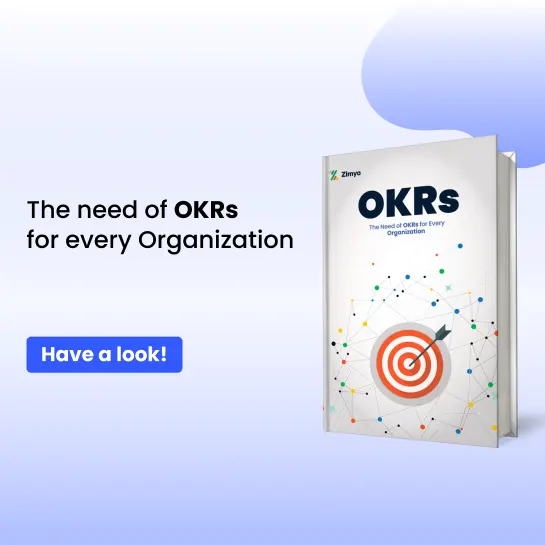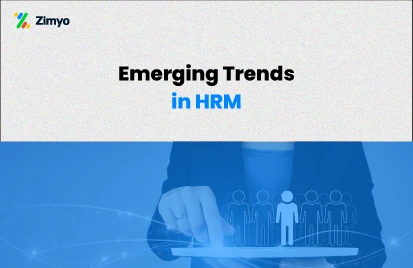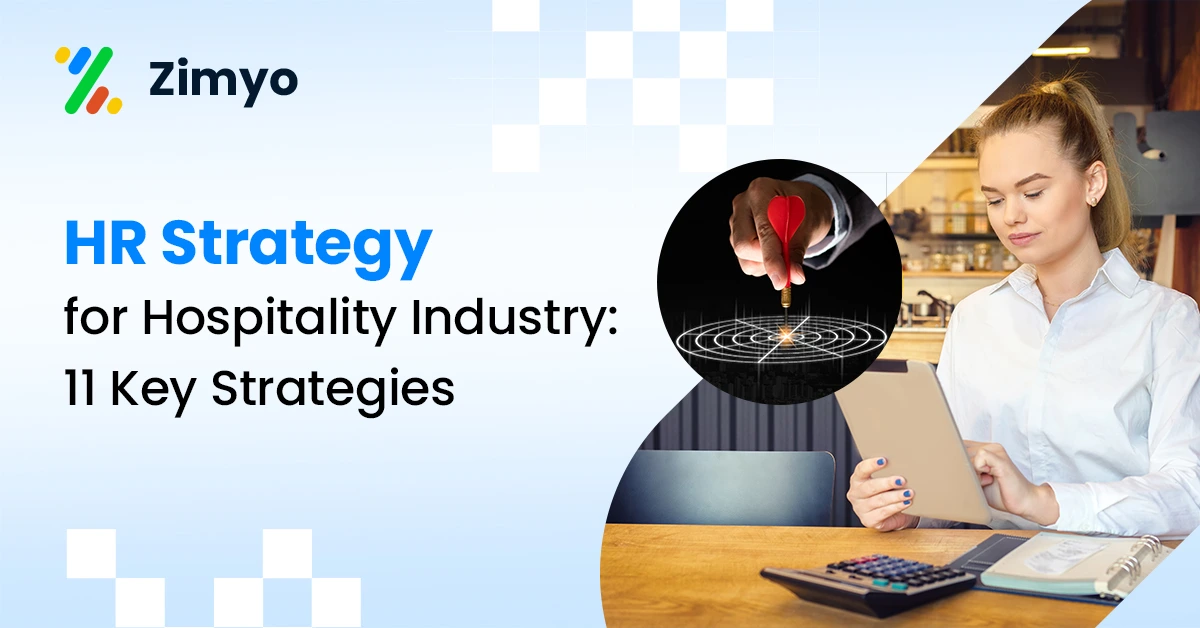Feeling Nervous About Your HR Interview?
Are you thinking what to expect from those HR interview questions? Whether you’re the one preparing for the interview or the HR professional asking the questions, understanding the HR interview questions and answers is essential to succeeding in the process.
In this blog, we’ll break down the common HR interview questions and provide answers that will help both interviewers and candidates. If you’re an HR professional, knowing the best HR interview questions with answers will allow you to identify the right candidate. If you’re preparing for your own HR round interview questions, knowing what to expect will boost your confidence and help you stand out. Let’s go through the most common HR interview questions.
Commonly Asked HR Interview Questions with Answers
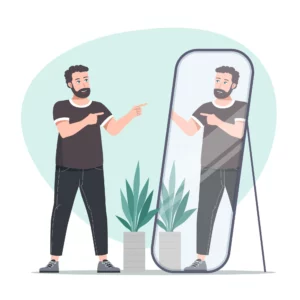
1. Tell me about yourself.
This is one of the most common HR interview questions for freshers and experienced candidates alike. Why do HR managers ask this? They want to see how well you present yourself. Keep it brief and relevant. Focus on your background, skills, and why you’re a great fit for the role.
Example Answer: “I’m a recent graduate with a degree in business management. I’ve interned at a marketing firm, where I honed my skills in project management and client relations. I’m excited about this opportunity because I believe my skills align with your team’s goals.”
2. Why do you want to work here?
This is another classic HR interview question. HR managers use this to check if you’ve done your research about the company. Be specific about what excites you about the role and the company.
Example Answer: “I’ve been following your company’s growth, especially your recent expansion into new markets. I admire your commitment to innovation, and I’m eager to contribute my skills to help your team reach new heights.”

3. What are your strengths?
This HR interview question allows you to highlight your best qualities. Talk about strengths that directly relate to the job you’re applying for.
Example Answer: “My key strength is communication. I can simplify complex information and ensure everyone is on the same page. This helps improve team collaboration and efficiency.”
4. What are your weaknesses?
An HR interview question designed to see if you’re self-aware and honest. Always choose a weakness that is not directly related to the core requirements of the job.
Example Answer: “I tend to overthink sometimes, which can slow me down in decision-making. However, I’ve been working on it by setting clearer priorities and timelines to stay on track.”
5. Where do you see yourself in five years?
This HR round interview question is designed to test your ambition and alignment with the company’s goals. Show that you’re committed to growth but also flexible.
Example Answer: “In five years, I see myself in a leadership role within your company, helping to drive strategic initiatives and mentoring junior team members.”
6. Why should we hire you?
This HR interview question and answer is your chance to sell yourself. Highlight how your skills and experience make you the best fit for the role.
Example Answer: “I bring a mix of strong communication skills and project management experience. I’m also eager to learn, adapt, and contribute to the success of your team.”

7. How do you handle stress?
Stress management is key in every job. Your answer to this HR question and answer will show how you deal with challenges in a productive way.
Example Answer: “When I’m under stress, I prioritize my tasks and break them down into smaller, manageable steps. I also take short breaks to clear my mind and stay focused.”
8. Tell us about a time you faced a challenge at work.
This is a behavioral HR round interview question. HR managers are looking for how you solve problems. Use the STAR method (Situation, Task, Action, Result) to structure your answer.
Example Answer: “In my last role, our team was behind on a major project. I took the initiative to organize daily check-ins, reassign tasks, and ensure everyone had the resources they needed. As a result, we completed the project on time and exceeded client expectations.”
9. How do you prioritize your tasks?
This HR interview question for freshers will help interviewers understand your time management skills. Show that you can handle multiple tasks efficiently.
Example Answer: “I make a list of tasks each morning, categorizing them by urgency. I focus on high-priority tasks first and allocate time for less urgent ones to ensure everything gets done.”
10. What do you know about our company?
An essential HR interview question and answer where interviewers expect you to demonstrate your research and interest in the company.
Example Answer: “I know your company has been in business for over 20 years and is a leader in the tech industry. I admire your commitment to innovation and the positive impact you’ve had on the community.”
11. Why did you leave your last job?
This is a tricky HR question often used to gauge your reason for moving on. Be honest, but stay professional.
Example Answer: “I left my previous job to seek new challenges and growth opportunities. I believe this role will offer me the chance to build on my skills and contribute meaningfully to your team.”

12. What motivates you?
In this HR round interview question, HR managers want to understand what drives you. Choose something that relates to the job.
Example Answer: “I’m motivated by the opportunity to solve complex problems and contribute to the success of the team. The challenge of overcoming obstacles energizes me.”
13. How do you handle criticism?
This HR interview question for freshers tests your ability to accept feedback and grow from it.
Example Answer: “I see criticism as an opportunity for improvement. When I receive feedback, I reflect on it, make necessary adjustments, and strive to do better next time.”

14. How do you handle working with a team?
Teamwork is a key skill in every workplace. In this HR interview question, HR managers want to see how well you collaborate with others.
Example Answer: “I enjoy working with a team. I believe in open communication, listening to others’ ideas, and supporting teammates to achieve shared goals.”
15. Do you have any questions for us?
Always be prepared to ask questions. This HR interview question and answer is your opportunity to show interest in the company.
Example Answer: “What are the key challenges your team is facing right now, and how can I contribute to overcoming them?”
16. Tell us about a time you worked under pressure.
When HR asks this question, they’re looking to see how you handle stress and tight deadlines. Share a specific example where you successfully managed pressure.
Example Answer: “In my previous job, we had a project with a tight deadline and multiple moving parts. I broke the project into smaller tasks, communicated with my team regularly, and focused on high-priority items. Even though it was stressful, we delivered the project on time, and the client was very pleased with the results.”
17. What do you enjoy doing outside of work?
This HR round interview question helps HR managers understand your personality. It also shows whether you have a healthy work-life balance.
Example Answer: “I love running and reading. Running helps me clear my mind and stay active, while reading allows me to unwind and stay curious. Both activities help me recharge for the workday ahead.”
18. How do you handle conflict?
Conflict resolution is a vital skill. This HR interview question is all about testing your ability to manage disagreements in a professional environment.
Example Answer: “When a conflict arises, I first listen to all parties involved to understand their perspective. Then, I focus on finding a solution that addresses the needs of everyone, without compromising the team’s overall goals. I believe communication is key to resolving any conflict effectively.”
19. Do you prefer working independently or in a team?
This HR interview question helps the HR manager understand your work style. Whether you prefer working solo or with others, be honest and align your answer with the role’s requirements.
Example Answer: “I enjoy both independent work and collaborating with a team. I’m highly self-motivated and can handle tasks on my own, but I also appreciate the synergy and creativity that comes from working with others.”
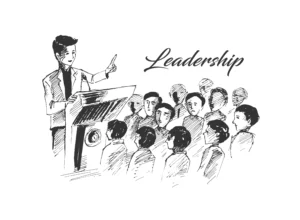
20. Describe your leadership style.
HR managers love to hear about leadership qualities, especially if you’re applying for a management position. This HR interview question is designed to assess how you motivate and lead others.
Example Answer: “My leadership style is collaborative. I like to listen to my team, encourage their input, and then guide them towards our common goals. I believe in empowering others, which leads to stronger performance and team engagement.”
21. How do you stay organized?
In this HR interview question, HR is looking for your ability to manage tasks effectively. Good organizational skills are essential in most roles, so be clear about your methods.
Example Answer: “I use a combination of tools to stay organized, including task management apps like Trello and a daily planner. I prioritize tasks based on urgency and set reminders to stay on top of deadlines.”
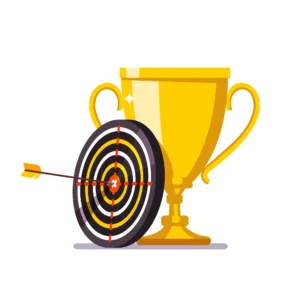
22. What’s your biggest achievement?
This HR interview question for freshers can be tricky because it asks for something impressive. Focus on an accomplishment that shows your skills and dedication.
Example Answer: “My biggest achievement was leading a team project that resulted in a 20% increase in efficiency. We implemented a new process that streamlined operations and saved the company both time and resources.”
23. How do you define success?
This HR interview question seeks insight into your values and how they align with the company’s goals. Be thoughtful in your response and show that you understand what success means in the professional world.
Example Answer: “To me, success is about continuous improvement and making a positive impact. It’s not just about reaching goals, but also about learning from challenges and growing along the way.”
24. How would your colleagues describe you?
In this HR round interview question, HR wants to hear about your teamwork, work ethic, and interpersonal skills. Think about how your peers would perceive you.
Example Answer: “My colleagues would describe me as dependable, collaborative, and solutions-oriented. They know they can count on me to complete tasks on time and to contribute positively to team discussions.”
25. What did you learn from your previous job?
HR often asks this question to see how you grow from your experiences. It also shows if you’re adaptable and open to learning.
Example Answer: “My previous job taught me the importance of clear communication. I learned how vital it is to keep all team members informed and aligned on goals to avoid misunderstandings and inefficiencies.”
26. How do you deal with a difficult coworker?
This HR interview question tests your ability to manage interpersonal issues in a professional setting. Use an example where you successfully resolved a challenge with a colleague.
Example Answer: “If I have a difficult coworker, I first try to understand their perspective. I believe in open dialogue, so I would address the issue respectfully and find a way to collaborate more effectively. If necessary, I’d involve a manager to mediate the situation.”
27. Can you work with minimal supervision?
This HR interview question checks if you’re a self-starter who can work independently. Show that you can be trusted to deliver results without constant oversight.
Example Answer: “Yes, I’m comfortable working with minimal supervision. I’m organized and self-motivated, and I always ensure that my tasks are completed on time, even without constant direction.”

28. How do you handle multiple priorities?
In this HR round interview question, HR managers want to know how you prioritize tasks when juggling multiple deadlines.
Example Answer: “When managing multiple priorities, I first evaluate the urgency of each task and create a schedule. I focus on the most critical items first, while making sure less urgent tasks are still on track. Effective time management is key to balancing everything.”
29. How do you approach problem-solving?
Problem-solving is a vital skill, and this HR interview question will help interviewers assess your critical thinking abilities.
Example Answer: “My approach to problem-solving starts with understanding the problem thoroughly. I break it down into manageable parts, then brainstorm potential solutions. I test those solutions and adjust as necessary to find the best outcome.”
30. How do you stay motivated during repetitive tasks?
This HR interview question for freshers helps HR understand how you maintain focus and motivation, even with mundane tasks.
Example Answer: “I stay motivated by focusing on the bigger picture. Even with repetitive tasks, I remind myself of the impact my work has on the overall goals. I also try to stay efficient and look for ways to streamline the process to keep it interesting.”
These HR questions and answers will help you prepare thoroughly, whether you’re the one being interviewed or conducting the interview. By practicing these responses, you’ll be ready to face any HR interview questions with confidence and clarity. Don’t forget, preparation is the key to success!
How Candidates Can Prepare for HR Interviews?
Preparing for an HR interview is just as crucial for candidates as it is for HR professionals. Here are some essential steps candidates should take before sitting down for an interview:
- Review Your Resume: Before the interview, go over your resume thoroughly. Be prepared to discuss your experience, achievements, and skills in detail.
- Research the Company: It’s vital to know about the company and its values. Familiarize yourself with the role, products, services, and corporate culture to tailor your answers accordingly.
- Prepare for Common Questions: Expect a mix of HR interview questions and be ready to discuss your strengths, weaknesses, and career goals. Practice your responses to avoid fumbling during the interview.
- Dress Appropriately: First impressions matter, so dress professionally for the interview. Research the company’s dress code if necessary to ensure you align with their culture.
- Be Ready to Ask Questions: Interviews are a two-way street. Prepare thoughtful questions for the interviewer about the company or role to demonstrate your interest and engagement.
Common Interview Mistakes Candidates Should Avoid
Preparing for an interview is one thing; performing well during the actual interview is another. While it’s natural to feel nervous, certain mistakes can harm your chances of success. Let’s talk about some of the most common HR interview questions mistakes and how you can avoid them.
🚫 Talking Too Much or Too Little
Do you ever wonder if you’re saying too much during an interview? Or maybe not enough? Striking the right balance is key. Oversharing can make you seem unprofessional, while being too brief might make you appear uninterested.
Example: When asked, “Tell me about yourself,” focus on your professional achievements and how they relate to the job. Avoid diving into irrelevant personal details like hobbies or family history.
Pro Tip: Use the STAR method (Situation, Task, Action, Result) to structure your answers concisely while staying relevant.
🚫 Failing to Research the Company
Have you ever gone into an interview without knowing anything about the company? This is a major red flag. Employers expect candidates to understand their mission, culture, and the role they’re applying for.
Example: Imagine you’re asked, “What do you know about us?” If you can’t respond with specifics about their industry, recent projects, or values, it shows a lack of effort.
How to Fix It: Spend at least 30 minutes researching the company’s website, recent news, and social media presence. This helps you align your answers to their expectations.
🚫 Not Asking Questions
Interviews are a two-way street. If you don’t ask questions, you miss a chance to show genuine interest and assess if the company is a good fit for you.
Example: When asked, “Do you have any questions for us?” a simple “No, I’m good” might make you seem disengaged. Instead, ask thoughtful questions like, “What does success in this role look like in the first six months?”
Pro Tip: Prepare 3–5 questions in advance about the company, team dynamics, or growth opportunities.
🚫 Showing Up Late or Too Early
Time management reflects professionalism. Arriving late signals disrespect for the interviewer’s time, while being too early can make them feel rushed.
Example: If your interview is scheduled for 10 a.m., aim to arrive 10–15 minutes beforehand—not at 9:30 a.m.
How to Fix It: Plan your route ahead of time and account for potential delays. If something unavoidable happens, inform the interviewer promptly.
🚫 Not Dressing Appropriately
Your appearance is part of your first impression. Dressing too casually or too formally for the company culture can send the wrong message.
Example: Showing up in jeans for a corporate job or wearing a full suit for a start up with a casual dress code might make you stand out—in the wrong way.
How to Fix It: Research the company’s dress code and choose attire that aligns with their culture while staying professional.
🚫 Talking Negatively About Past Employers
Do you think venting about a previous boss makes you relatable? Think again. Speaking poorly about past employers or colleagues comes across as unprofessional and can make interviewers question your attitude.
Example: When asked, “Why did you leave your last job?” avoid answers like, “My boss was terrible.” Instead, focus on positive reasons, such as seeking growth opportunities.
Pro Tip: Reframe negative experiences into learning moments. This shows resilience and maturity.
🚫 Not Paying Attention to Body Language
Have you ever crossed your arms during an interview without realizing it? Your body language speaks volumes. Closed-off or fidgety gestures can make you seem nervous or disengaged.
Example: Avoid slouching, crossing your arms, or failing to maintain eye contact. These behaviors may make you appear uninterested or defensive.
How to Fix It: Sit up straight, maintain good eye contact, and nod occasionally to show you’re engaged.
🚫 Failing to Follow Up After the Interview
Did you know that 57% of hiring managers say a thankyou email influences their decision? Failing to follow up shows a lack of gratitude or interest.
Example: After the interview, send a personalized email thanking the interviewer for their time and reiterating your enthusiasm for the role. Mention specific points discussed during the interview to make your email stand out.
Pro Tip: Send your follow-up within 24 hours of the interview.
By avoiding these common mistakes, you’ll significantly improve your chances of acing the HR round interview questions. Remember, preparation, professionalism, and genuine enthusiasm go a long way in leaving a lasting impression. Treat each interview as a learning experience, and you’ll find yourself growing more confident with every opportunity.
Way Forward
Mastering HR interview questions is essential for both candidates and HR professionals. For candidates, thorough preparation, clear communication, and showcasing your unique strengths can make you stand out. For HR professionals, evaluating a candidate’s skills, cultural fit, and problem-solving abilities ensures hiring the right talent. With the right approach and mindset, HR interviews can be an opportunity to build strong, lasting professional connections. Remember, preparation and confidence are the keys to success in any interview!


